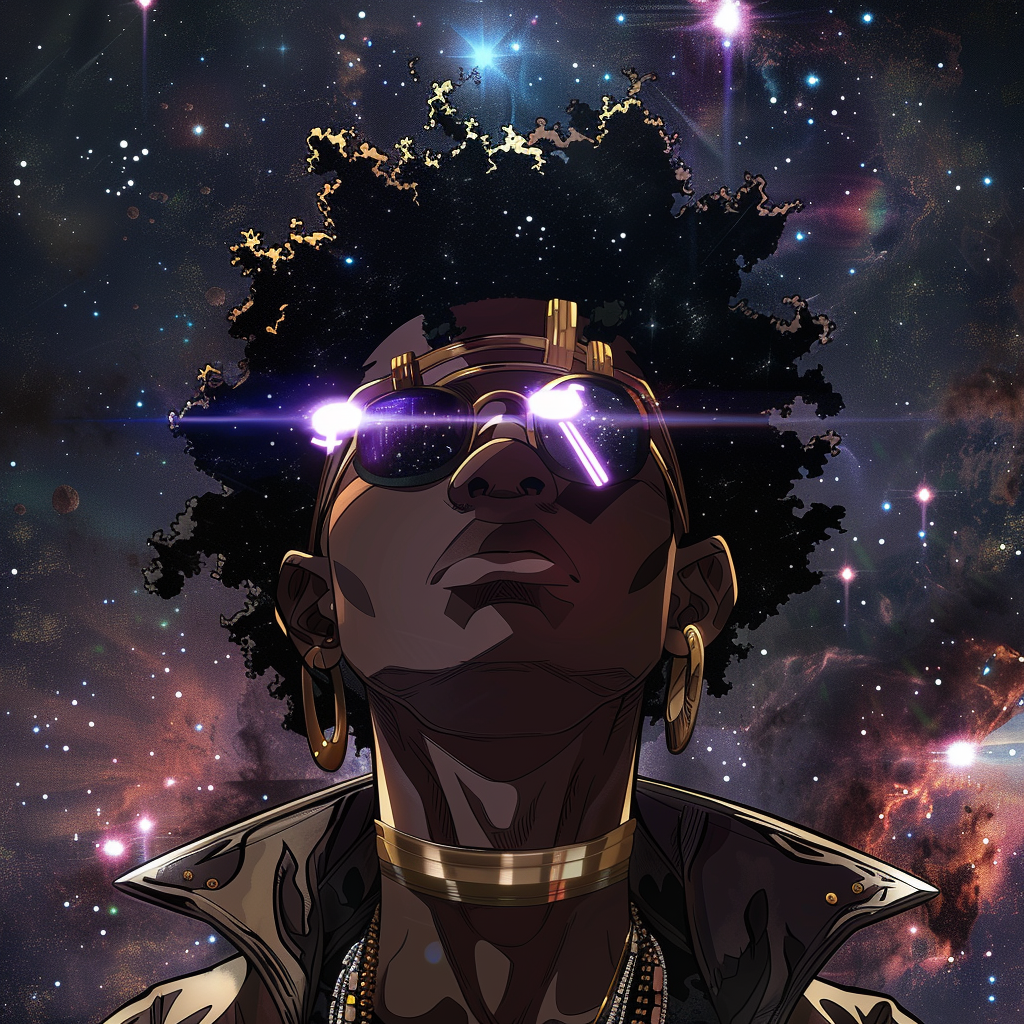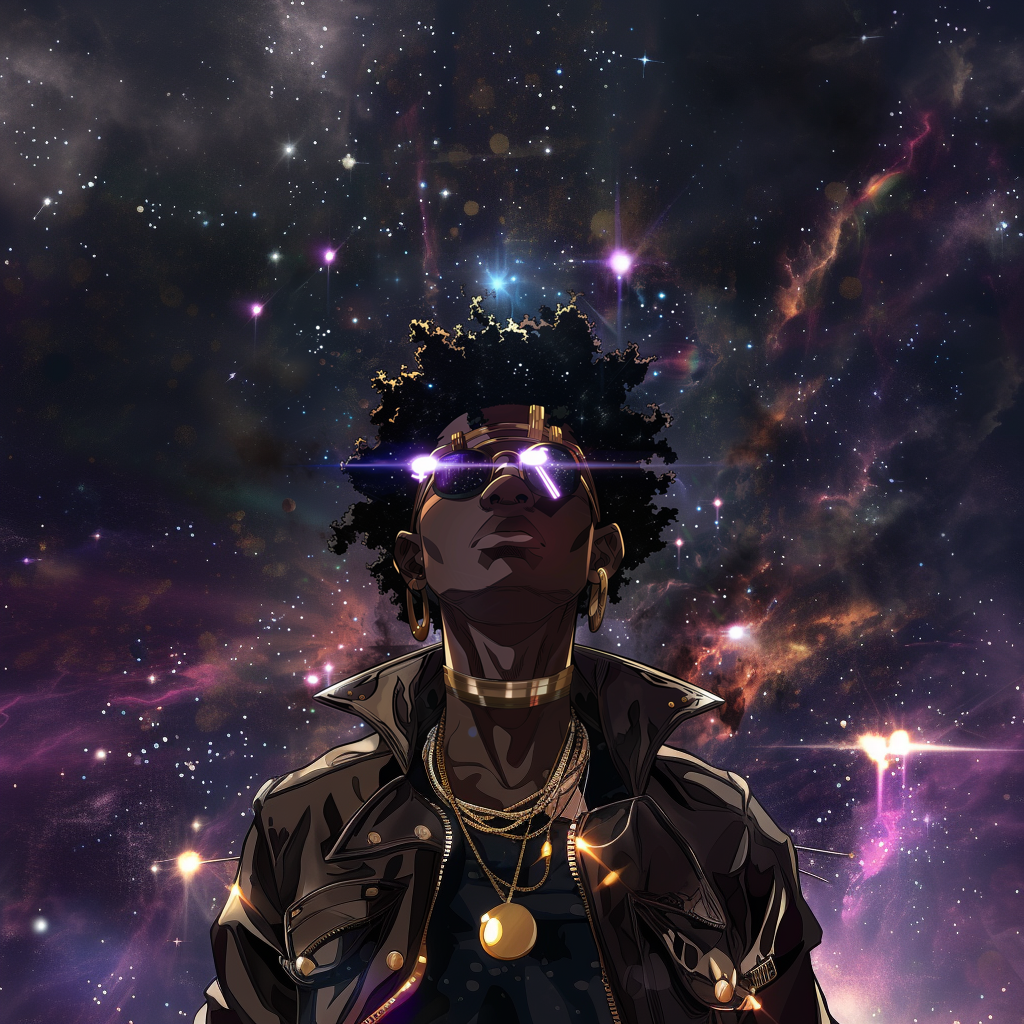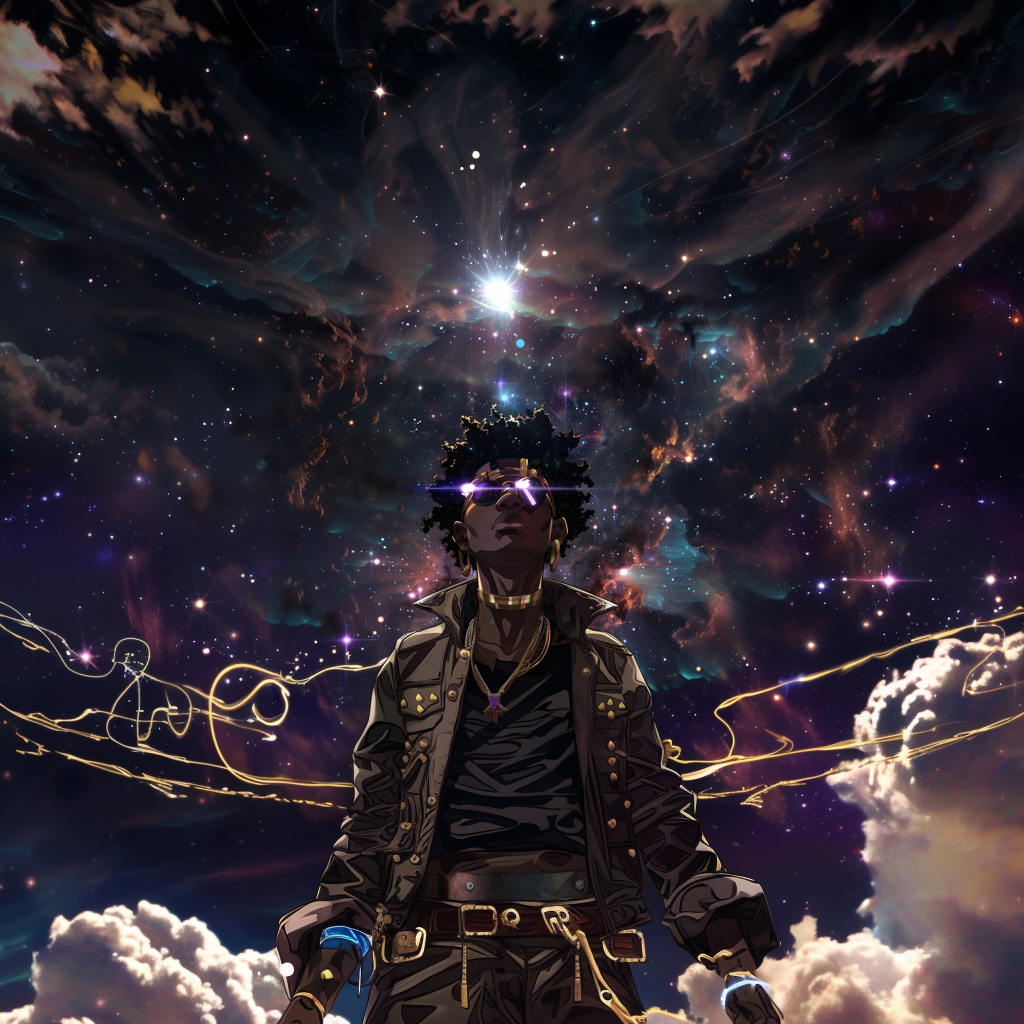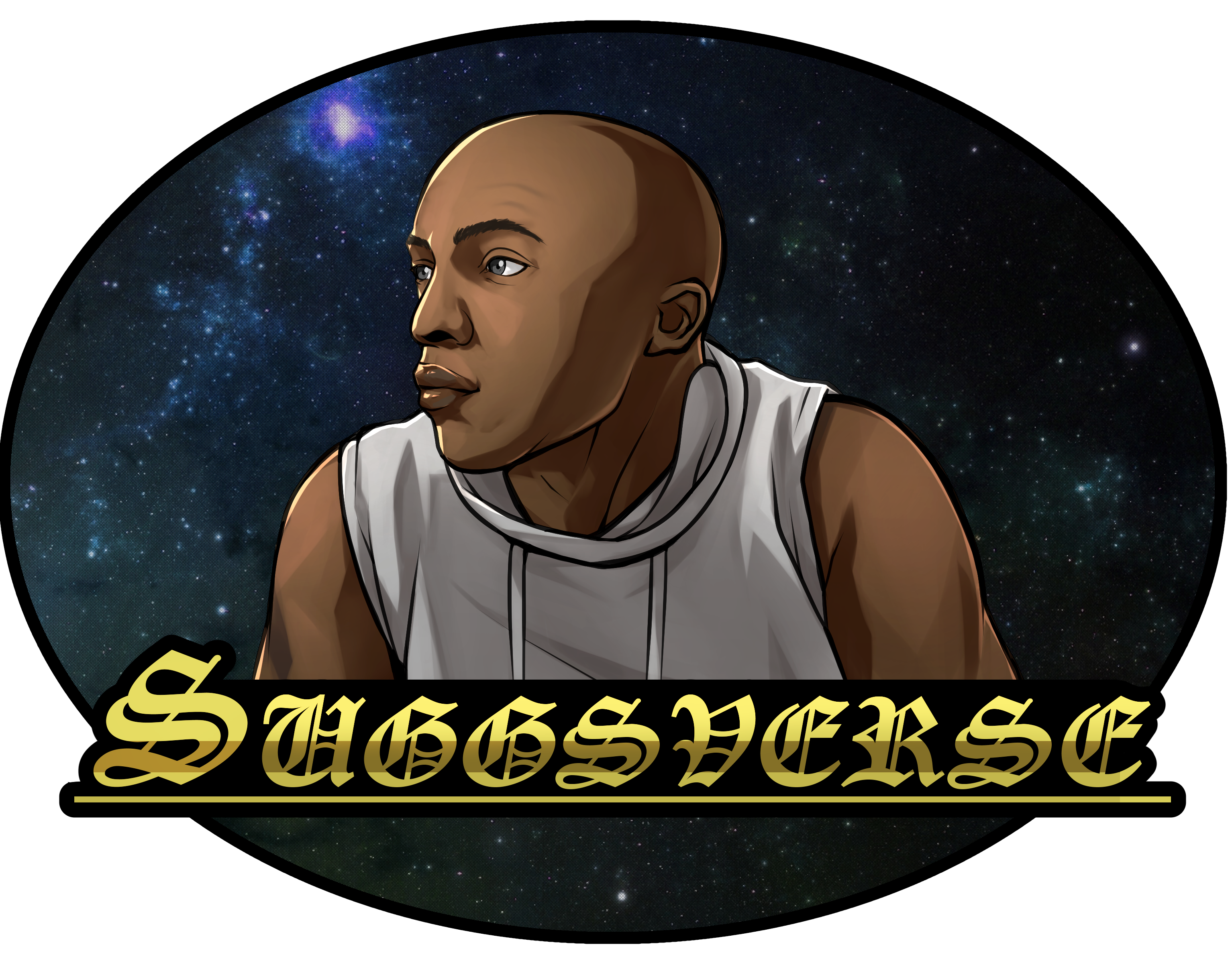Chapter 4: The Cosmic Architect’s Last Stand
Dascalon Demiurge stood at the threshold of Ditron’s realm, his silhouette framed against a backdrop of swirling nebulae and collapsing stars. His appearance was that of a cosmic wanderer, adorned in layers of leather and cosmic threads, with a look that defied both time and reality. His skin, a deep shade that absorbed the light around him, contrasted sharply with the glowing cosmic rings around his wrists and neck. His sunglasses, reflecting the stars and galaxies, concealed eyes that held the secrets of the Omniverse. His hair, wild and adorned with golden lights, crackled with the power of worlds that once were.

Dascalon was not just a fighter; he was an architect of the cosmos, a manipulator of realities and dreamscapes. His personality was cool and introspective, marked by a quiet confidence and a keen sense of justice that stemmed from his connection to the fabric of existence itself. He spoke in measured tones, his words laced with cosmic wisdom and the weight of countless lost creations. Every movement he made was deliberate, each step a calculated defiance against the emptiness that had consumed his home.
“You’ve taken everything from me, Ditron,” Dascalon said, his voice echoing through the empty expanse. “But you can’t take my will. You can’t erase the creator of the impossible.”
Ditron materialized before him, a shifting mass of chaos and nihilism that seemed to bend reality itself. Its presence was an affront to all that Dascalon had ever known, an endless void that threatened to consume even the most boundless of dreams. “You are but a fragment of the past,” Ditron intoned, its voice a cacophony of despair. “A shadow clinging to a light that no longer exists.”
Dascalon clenched his fists, and reality around him began to warp. With a flick of his wrist, he summoned constructs of pure concept—the very idea of creation manifesting as brilliant, luminescent threads that wove through the void. He forged these threads into weapons, blades that could cut through the principles of causality and alter the very nature of existence. With each swing, he erased the concept of limitation, turning Ditron’s attacks back upon themselves.

As Ditron retaliated, unleashing tendrils of void that sought to erase Dascalon from the narrative, Dascalon countered with bursts of starlight that nullified the possibility of impact. Each flash of light removed the very potential for Ditron’s attacks to connect, rewriting the battle in real-time. The two clashed in a battle of wills, each attack from Dascalon not just a pataphysical strike, but an erasure of the grand meta-narrative’s binding principles.
Dascalon created a cosmic barrier, an unbreakable fortress made from the echoes of uncreated worlds. This barrier was not just a shield; it was a reassertion of actuality, a defiant stand against the concept of unmaking. Ditron struck the barrier, but each blow only strengthened it, as Dascalon’s power fed on the very void that sought to undo him.
“You think you can break me?” Dascalon taunted, his voice tinged with cosmic bravado. “I’m the architect of reality’s dreams, the weaver of the improbable.”
Ditron, unyielding, responded with an attack that went beyond physical strikes. It reached into the meta-framework of existence, pulling apart the concept of Dascalon’s power itself, unraveling his influence on the grand meta-narrative. Dascalon staggered, feeling the very principles he manipulated slipping from his grasp. His constructs flickered and wavered, losing cohesion as Ditron began to erase the actuality of creation from within him.
Despite the overwhelming assault, Dascalon pushed forward, summoning a final gambit. He wove together the stars, planets, and cosmic threads into a single, monumental strike—a singularity of defiance meant to erase Ditron’s existence from all possible realities. The strike was not just an attack; it was a rewriting of the Omniverse’s laws, a desperate attempt to restore the balance that Ditron had torn apart.

But as the attack connected, Ditron’s true nature revealed itself. It absorbed the strike, unraveling the cosmic threads and reducing Dascalon’s final stand to a fleeting light in the vast darkness. The entity consumed the singularity, feeding off its boundless complexity and turning it to nothingness. Dascalon’s form began to dissolve, the very fabric of his being unmade by the relentless void.
As he faded, Dascalon’s expression remained defiant, his last words resonating through the endless expanse. “You may erase me… but you’ll never erase the echoes of creation. I am the dream that defies the void.”
Ditron watched as Dascalon’s form disintegrated into stardust, his essence scattered across the remnants of the erased Omniverse. “Dreams are fleeting,” Ditron whispered, a cold smile forming within its shadowy mass. “And all dreams end in darkness.”
The void consumed Dascalon, but his light remained as a faint, indomitable flicker—a testament to the unbreakable will of the creator, even in the face of the ultimate nothingness.
